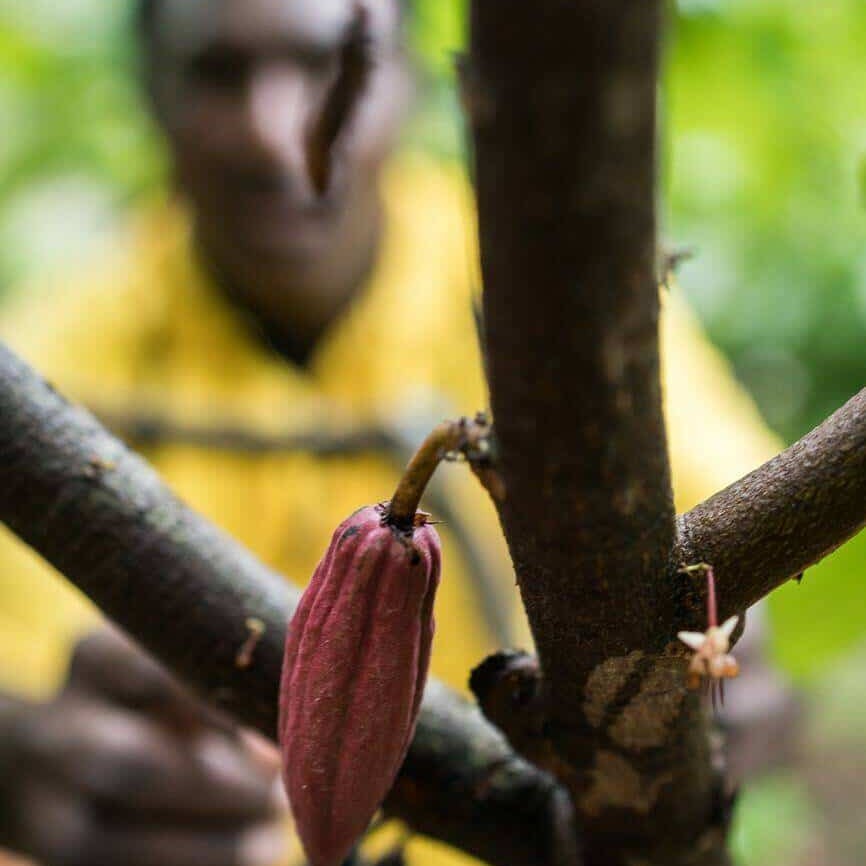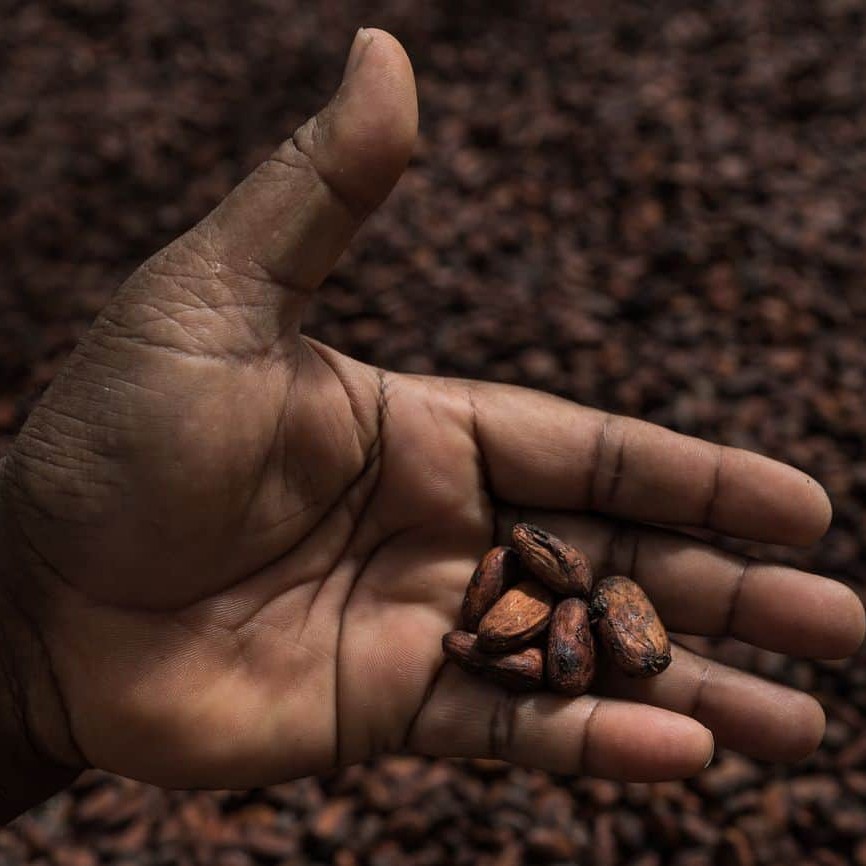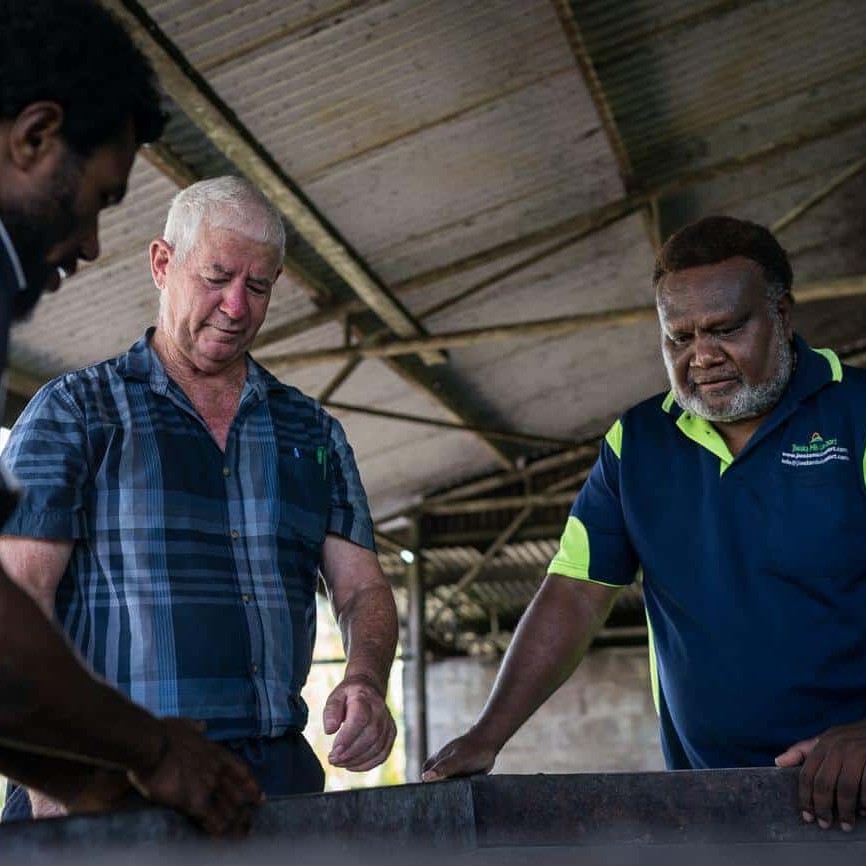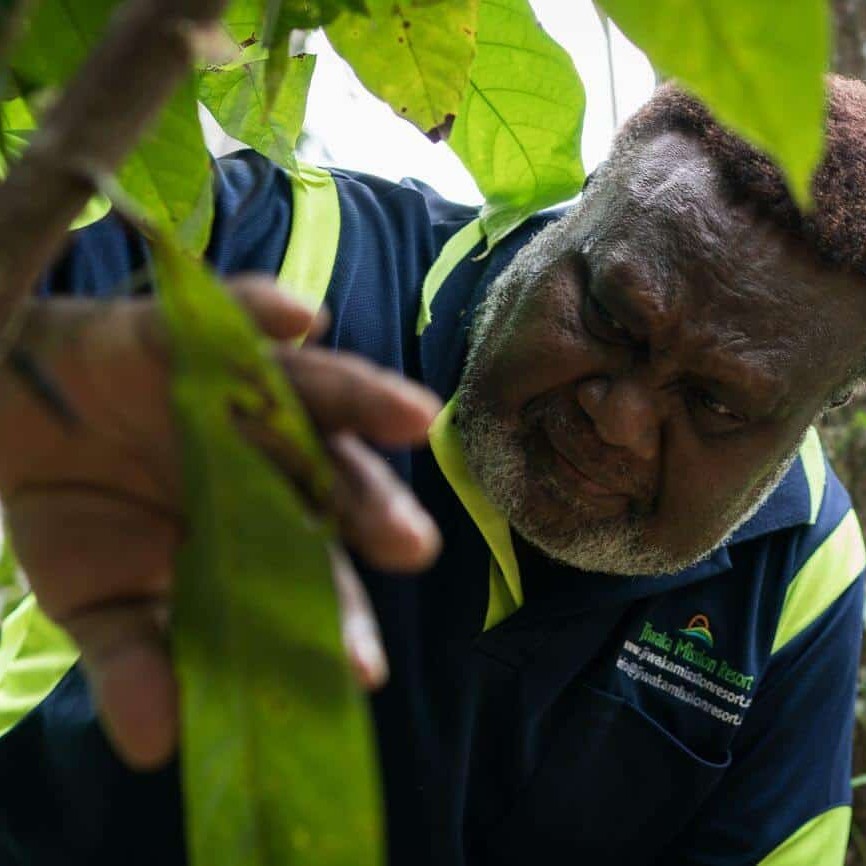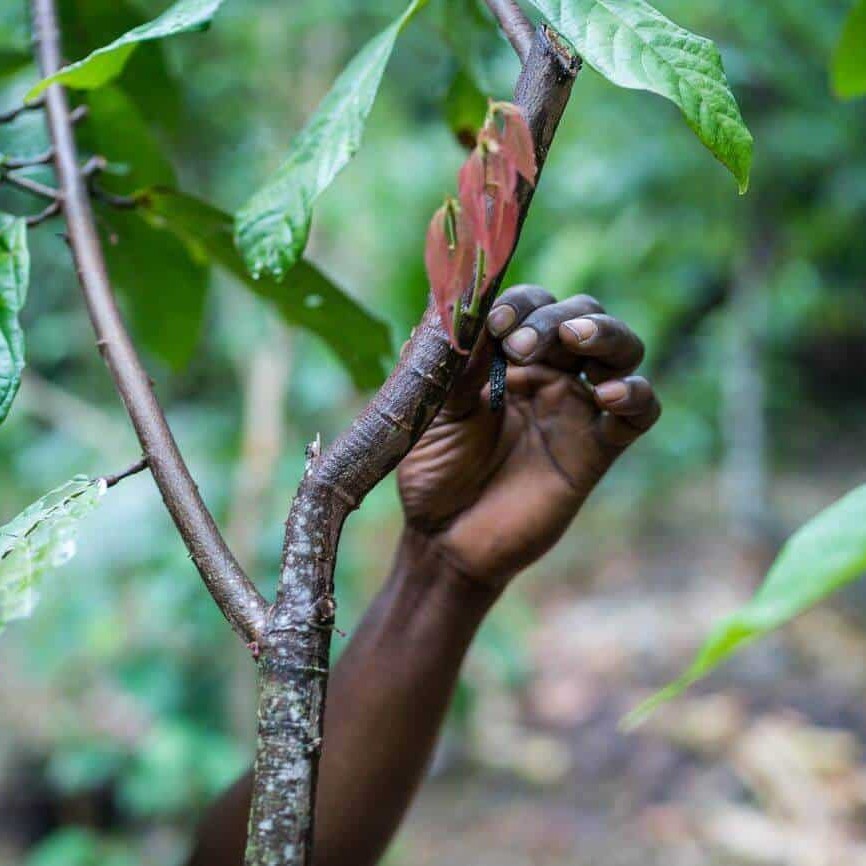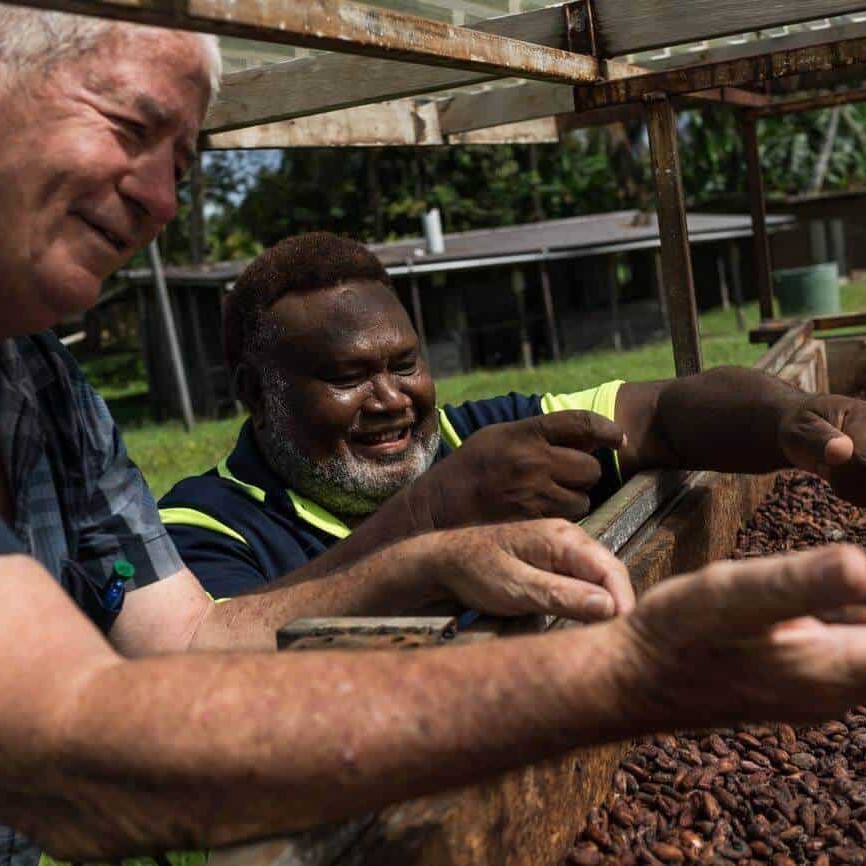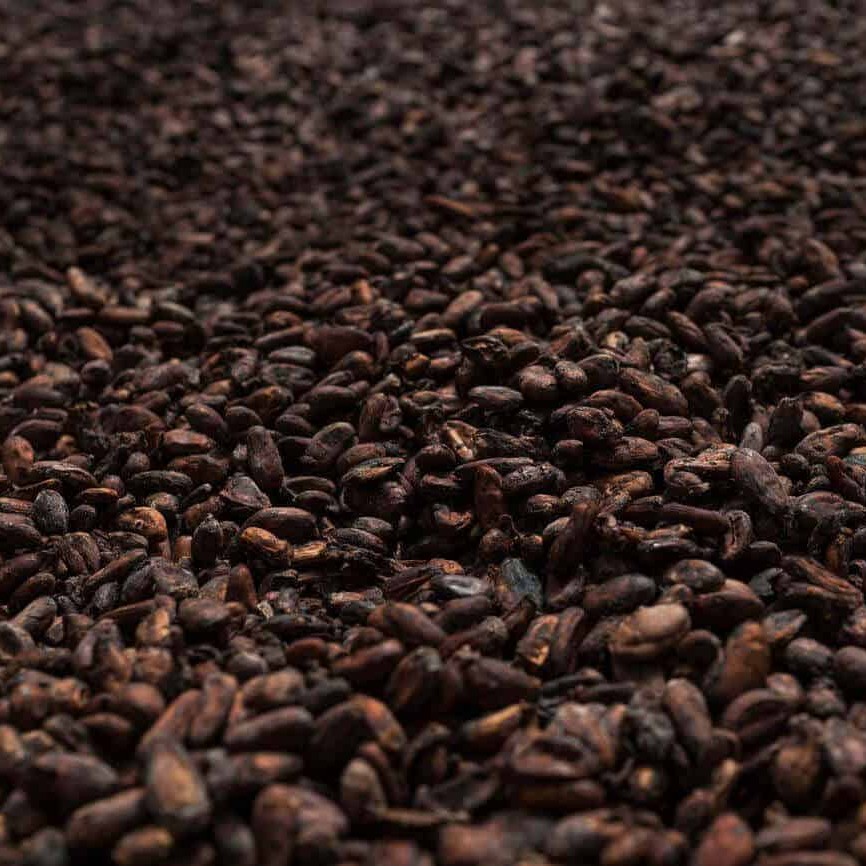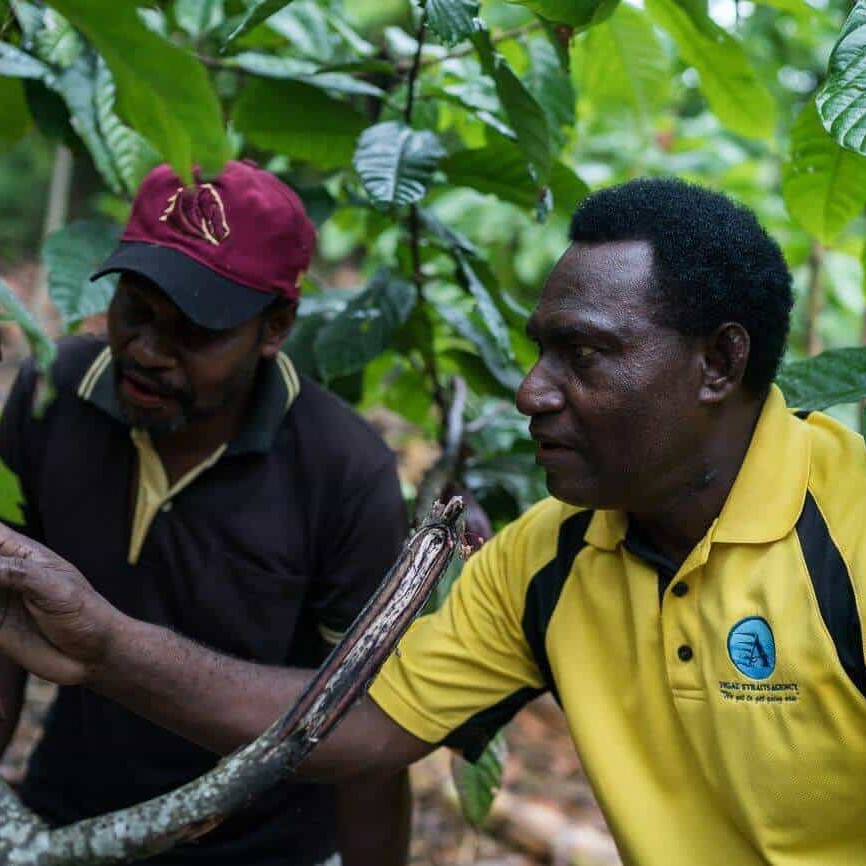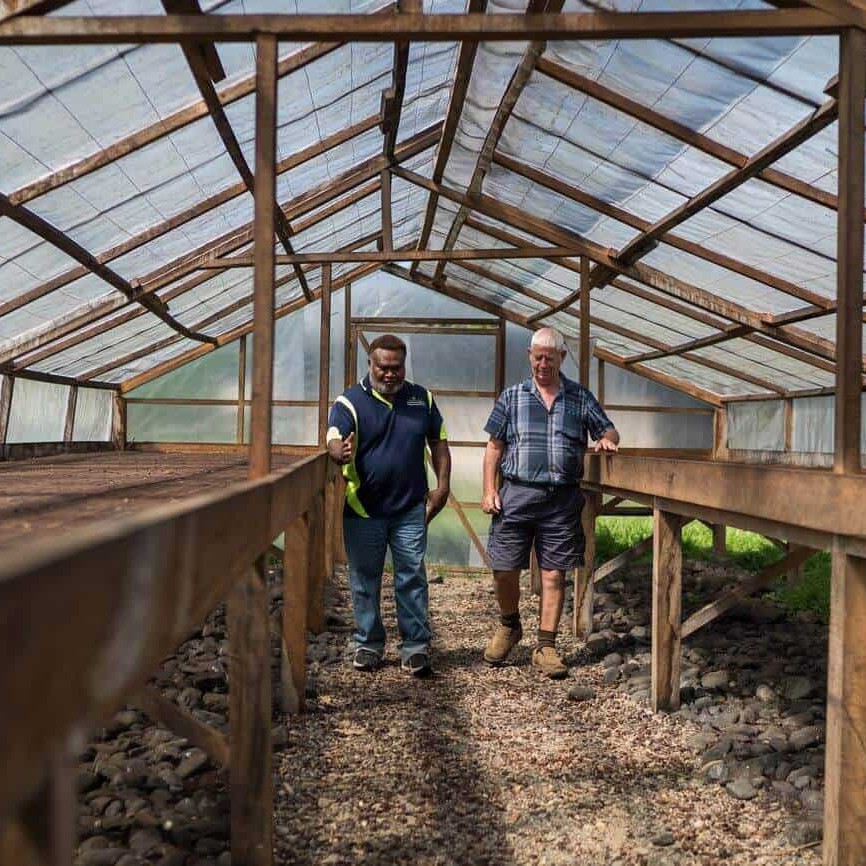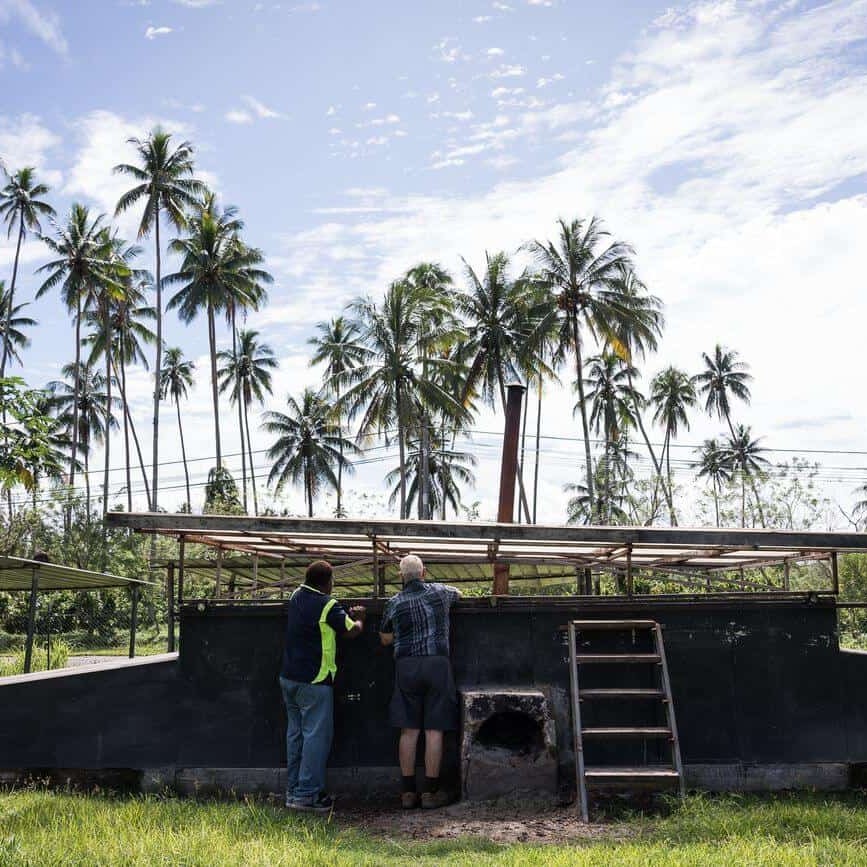This project aimed to make smallholder cocoa enterprises in Papua New Guinea’s East Sepik, Madang, New Ireland and Chimbu Provinces more productive and profitable.
Cocoa is a profitable smallholder crop and export trade commodity in Papua New Guinea and drives rural development. 150,000 smallholder farming families grow cocoa, which accounts for 18% of agricultural exports. Old cocoa plantings have become overgrown, resulting in low yields, under-harvesting and heavy losses to pests and diseases, especially Phytophthora Pod Rot (Black Pod).
Cocoa production in PNG, always low due to poor management, was nearly destroyed by the incursion of Cocoa Pod Borer (CPB). Only the Papua New Guinea Cocoa Coconut Institute’s (CCI) new varieties and methods, which can increase yields to high levels, could revive the industry.
This project sought to help the smallholder farmers who make up more than 90% of production widely apply these new varieties and straightforward methods.
Project Code: HORT/2014/096
Commissioned Organisation: La Trobe University
Project Leader: Phil Keane
Collaborating Institutions:
- PNG Cocoa Coconut Institute (CCI)
- Cocoa Board of PNG
- Curtin University
- La Trobe University
- University of Natural Resources (UNRE)
Project Budget: $4.9 million
Project Duration: March 2016 – February 2021
Research Program Manager: Irene Kernot
- To foster the development of profitable, self-supporting, village-based cocoa extension and other services as micro-enterprises supported by financial institutions, commercial cocoa buying and supply companies, and existing research and extension services
- To introduce and evaluate on farms, with farmer participation led by village extension workers, transformative new cocoa cultivars and cocoa selection, propagation, production and postharvest methods
- To introduce and evaluate on farms, with farmer participation led by village extension workers, options for development of new cocoa farming systems integrating food crops, livestock, and high-value shade and other tree crops


